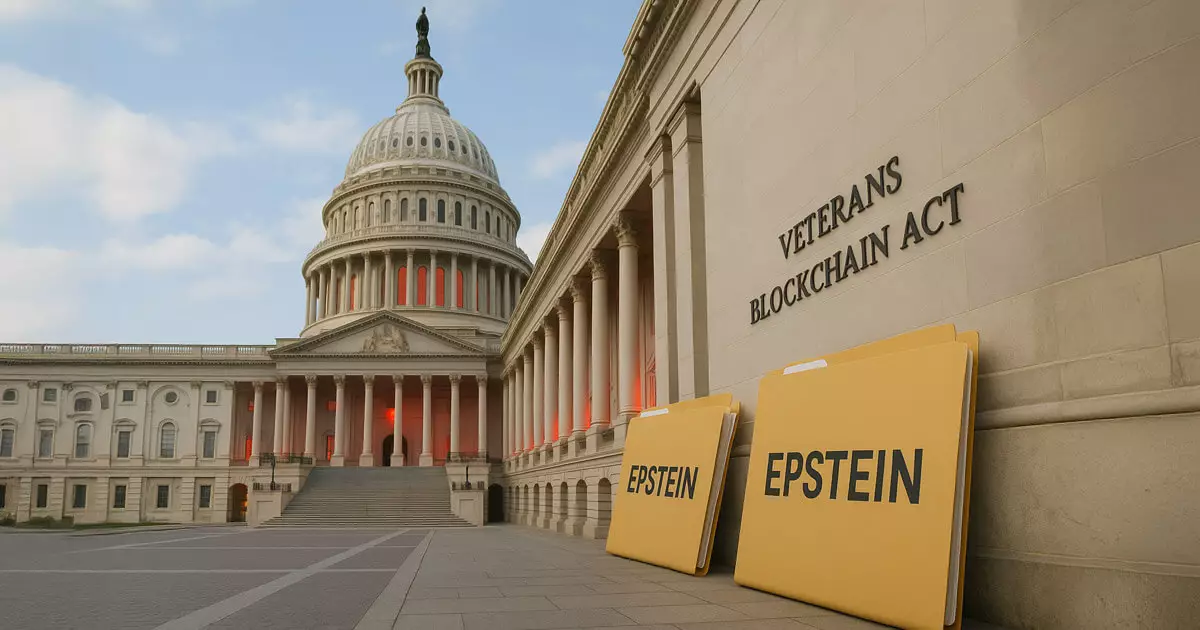The early adjournment of the House of Representatives signals more than just a scheduled break; it exposes an underlying tension between political strategy and legislative efficacy. By rushing into recess, Speaker Mike Johnson seemingly glazes over the necessity of timely debate on issues that impact the economy and national security. While some may argue that a session’s pause allows for reflection and concentrated negotiations, a closer look suggests the move risks undercutting the House’s role as an active legislative entity. Especially in a landscape rife with contentious debates—such as those surrounding oversight of powerful financial entities and emerging technologies—abruptly halting proceedings can undermine progress and erode public trust.
This decision seems rooted in internal political calculus rather than a genuine need for pause. House Republicans and Democrats have battled fiercely over measures like the Epstein file release, crypto regulation, and veteran affairs. Each of these issues carries significant weight; delaying action merely prolongs uncertainty and leaves urgent policy questions unresolved. For example, the debate over the Epstein files reflects deeper issues of transparency and accountability, but by shelving the matter until after Labor Day, Congress risks losing momentum, allowing misinformation and partisan posturing to fill the vacuum.
Moreover, the postponement reveals the dangerous tendency of external political factors—such as partisan disagreements—impeding the legislative process. When procedural battles become the primary focus, substantive policy work is often sacrificed on the altar of optics or political expediency. This short-term gain hampers long-term policy development, especially in the rapidly evolving landscape of digital assets and blockchain technology, which demand continuous oversight and timely regulation, not delays.
The Impact on Financial Innovation and Regulatory Certainty
Despite the House’s sudden withdrawal from the legislative arena, some bills have already made notable progress. The bipartisan approval of the GENIUS Act, the CLARITY Act, and the Anti-CBDC Act signals a recognition that the United States can and should position itself at the forefront of financial innovation. The fact that these measures have cleared Congress and received executive support underscores the importance of creating a balanced regulatory environment that fosters innovation while protecting consumers.
However, the delay of further debate on crypto taxation and regulation—specifically, the often-overlooked but crucial taxonomy on small transactions, staking rewards, and wash sales—threatens to slow America’s competitive edge. These issues are not academic; they are core to ensuring the U.S. remains a global leader in digital assets and blockchain development. The recess stalls legislative momentum, which could embolden unfavorable international competitors to continue their regulatory development unimpeded, potentially making the U.S. less attractive for innovators and investors.
Furthermore, proposals like the Veterans Affairs Distributed Ledger Innovation Act were designed to pioneer a smarter, more transparent approach to government services through blockchain technology. Halting its progress leaves vital improvements in limbo, stalling potential benefits that could streamline benefits processing, reduce fraud, and increase transparency for veterans. In this context, the premature recess becomes not merely a procedural pause but a strategic disadvantage, delaying the tangible gains that tech-driven policy can bring.
A Short-Sighted Approach in a Critical Moment
This early adjournment underscores a broader problem: a political environment increasingly disconnected from the pressing demands of economic and technological progress. The House’s failure to harness its full legislative capacity before recess reveals a preference for politicking over action. It demonstrates an unwillingness to confront the complexities of digital regulation, veteran care, and oversight with the urgency they deserve.
Effectively, it allows partisan disputes—such as the Epstein file debate—to prolong unresolved conflicts, fostering an atmosphere of inertia. The consequences are not limited to political theatrics; they translate into real-world delays that impact markets, government agencies, and citizens relying on timely policies. The crypto community, in particular, faces the fallout of this paralysis, as pending legislation that could shape the future of digital assets remains on hold.
In a world where swift legislative responses can promote growth, innovation, and trust, the House’s decision to cut the session short appears shortsighted and damaging. As policymakers retreat into recess, critical issues risk becoming distant memories until the chamber reconvenes—long after their urgency has diminished. This pattern, if unchecked, could fundamentally weaken governmental responsiveness and the nation’s competitive stance in a digital economy that waits for no one.



















Leave a Reply